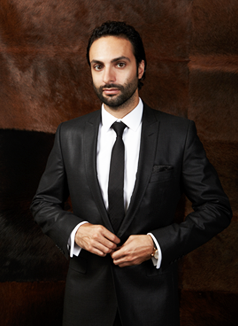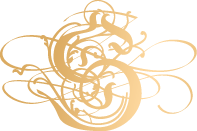
You are the President of Society
Awards, a company that you actually founded. Take us through your average work
day.
This is not going to sound as
exciting as it is. Just imagine that
between the lines here, I’m meeting with interesting clients, we’re making the
impossible happen repeatedly, we’re ideating and executing exhilarating
marketing projects, we’re expanding business for ourselves and our clients –
there’s constant growth. Most of what I
do is make beautiful sculpture, and market beautiful luxury brands. And lots of tiny details in between that’s
really the heart of “doing the impossible.”
Dreaming it up is one field, then getting down to an almost
military-like discipline in setting about to do everything necessary to successfully
bring the awesome dreams to reality is another skill. I work hard to be on both sides of that
bridge every day.
7AM-9AM: read and respond to emails from home office, oversee the birth of beautiful sculptures and objects, correspond with the factories and keep a steady hand on complex production
9AM-10AM: gym & weight training (heavy weightlifting, floor work, gymnastics, advanced yoga, core work)
10AM-12noon: more email, prepare meals for the day (6), get ready for work (sartorial planning & experimentation), go to the office
Noon-4PM: follow up on projects, meet with employees, meet with clients, start new projects
4PM-6PM: review accounting, finance and corporate matters
6PM-8PM: start new production, high-level and low-level marketing ideas and execution (rein in crazy ideas, try to do what’s actually productive rather than only high end, fun and awesome)
9PM-10PM: clean up anything overlooked from the day and before, whisky tasting / new spirits or wine product sampling
10PM-midnight: read (world “canonical” literature & important works, poetry and non-fiction “business” and strategy books, scientific research and literature), wind down
Midnight-7AM: sleep, repeat
Every third week: take one day to spend more time reading and party way too hard or travel and do same
Think back to when you first were starting out
–
Who were the biggest
inspirations for your career?
I’ll tell the truth here. At NYU, I refused to take classes that began
before noon. Preferably 1PM or
later. It will be easy to understand
that I had a lot of fun. After a rough
start, I found a type of “balance” if you could call it that and ended up
graduating cum laude overall and summa cum laude within my major (Literature). I had built an events and promotional business
on the side and invested in a few bar lounges in NYC. When I went to law school, part of the
negotiation of my deal was that in addition to the scholarship I wanted to be
able to take classes through different sections so that I could maintain this
schedule of classes only beginning after noon, ostensibly so that I could
continue managing my nightlife businesses.
After two more glorious years (I need to say that law school itself is
horrendous by the way), I just woke up one day and realized that I had been
walking up at noon for 6 years, which at that age is one-fourth of your
life. You’re a baby for one-fourth,
you’re a little kid for one-fourth, you’re a teenager for one-fourth, and then
I was this, well frankly it was really awesome, but it suddenly just felt like
I could do more. (I graduated law school
in the top 15% but still decided to go into business instead.)
So my inspiration was this image that I had in my mind at that time of a white haired CEO who is all old and out of shape, but still manages to run a successful company, be on the board of several others, get involved in personal projects, travel extensively, probably play golf – and just generally be super busy and productive. He definitely wakes up before noon. But that guy I had in my mind was all old and weak. I was young and vital – so I just decided that I’ll start acting like that guy now. More or less, of course. That’s when I started drinking coffee first thing in the morning and set about to hold myself to, what I realize now as I am finally feeling the pain of the schedule I’ve lived for the last eight years, is an unrealistic standard. But at that time, I decided that law was too limiting and shortly after that I started Society Awards.
My friends and family have always been an inspiration to me as well. I have a very tight knit group of best buddies that have been able to give me great support and advice the whole way through.
Further from that, two companies
have been the inspiration for Society Awards.
American Express from a service standpoint and from a reliability
standpoint, and Tiffany from a branding and credibility stand point. The tweaks are that AmEx just gives you
whatever you want and charges you for that, whereas at Society Awards we have
to do what’s overall in your best interest and balance the scale every time,
and with Tiffany we have the prestige, excitement and allure, but none of the
attitude – it’s a lot more approachable.
We want our clients to feel really good about everything and trust us to
“do our thing” and do what needs to be done to bring about the best
result.
What have been your keys to success? How would you define success
These are the simple keys to the
success of Society Awards: a) identify
a market segment, b) make a clear strategy of exactly what you want to do, c)
build everything else around that strategy and weave it into the fabric and
foundation of everything, and most important d) work like an alien machine
(from a planet where they work really hard), care deeply about everything and
just try to find out what your limit is if you can really reach it, and keep
pushing it and exceeding it, find out where is really the ceiling, what is the
most that you can possibly do and still have health (sanity, you can recover later). By the time you discover that, years will go
by, you’ll be very tired, but you’ll look around and you’ll be almost shocked
to see that what you planned has been built.
My grandfather told me once that
happiness is your desires divided into your ability to provide yourself with
them. Whatever that relationship is will
determine if a person is happy or not.
If you only want very little, and you give yourself those things in
abundance, you will be a very happy person.
If you want so much and you have so much, but it’s not enough, you might
not be happy. So I try to think about
what I really want – and it’s a hard thing to do. At work, we’re already the best and now it’s
about continuing to raise the bar, finding ways to make the experience better
for the clients.
What do you enjoy most about your position?
Making and marketing beautiful
things.
Name one thing Society Awards does best.
Within our field, we do everything
relevant the best (not to boast, but I can prove this). The one thing that we do not do the best, is
that we do not just do whatever the customer says blindly. Rarely is a customer a trophy or sculpture
expert, and even more rarely within the materials that we work. While the design and many logistical elements
can be entirely custom, the execution and other areas need to remain within our
exclusive control. We are the
experts. Ultimately, who wouldn’t want
this? People don’t really want to
control things that they don’t fully understand, they just want things to be
done right – so if our clients have the confidence that we’ll do it right, then
we all win.
What project are you most proud of?
This isn’t fair to our many
prestigious clients, I can’t choose just one.
I am very proud not only to have worked with the prestigious
organizations, famous designers, artists and brands that we’ve worked with, but
to have had the respect and comradery that we’ve had in our relationships with
these people. It truly felt like peer to
peer collaboration which is super satisfying.
What kind of legacy do you want to leave?
Am I going somewhere anytime
soon? I’m still pretty young I
think! I guess I’m now old to a person
who is my age when I started. I’m going
to borrow a line from Jessie J; I’m still working on my masterpiece.
Any advice for an aspiring young entrepreneur?
I have endless advice for young
entrepreneurs that want to ask me.
Mainly though, working for yourself means tremendously more work than
you ever imagined that you could be capable of doing, tremendously more
sacrifices, and wearing every possible hat and doing every kind of job from the
most menial to the most ambitious, every day.
Sure, there are lots of stories in the media about some entrepreneurs
that create a work/life balance or don’t work very much. These really are the exceptions. Generally, the people who are creating value are
doing so with backbreaking devotion. The
point I am trying to make is that if you are prepared to give everything you
have, then you mitigate the usual risks with starting a new venture. If you’re prepared to do that, then you can
be prepared for whatever happens. Good
fortune will be amplified and bad fortune will be mitigated. If you keep grinding away, then you’ll find
the time to do all of your needed business activities, plus start planning and
preparing for contingencies or opportunities.
With multiple contingency plans in place, not only will you clearly
understand what you’re getting into at each phase, you will also be able to
timely deploy a curative if things shift. In my opinion, you must bridge the gap between plans and details. Forest and trees. Vision and execution. If one or the other is truly impossible to
you, then get a counterpart. There’s
some misconception that working for yourself equals freedom. Sure, the freedom for there to be no limit to
the amount of work that you can do. If
you have a job, and you live in the office and all you do is work, you will
eventually get everything productive done that you can possibly do, and then
you’ll need to ask permission to start some new endeavor. You’ll need to check in with people and get
approvals and make your case, and so there will be some natural pausing points. At certain points, even if you lived in the
office, you will need to wait for something else to happen, and you can’t just
start another project while you wait.
But when you work for yourself, there are none of those limits. You can just keep going on an endless forward
path. If this is exciting to you, then
you should be an entrepreneur.
I’m not going to say that some level of freedom doesn’t come – it certainly can eventually. But you always will have those beautiful golden shackles. Just consider it a fashion accessory.





 PREVIOUS POST
PREVIOUS POST
